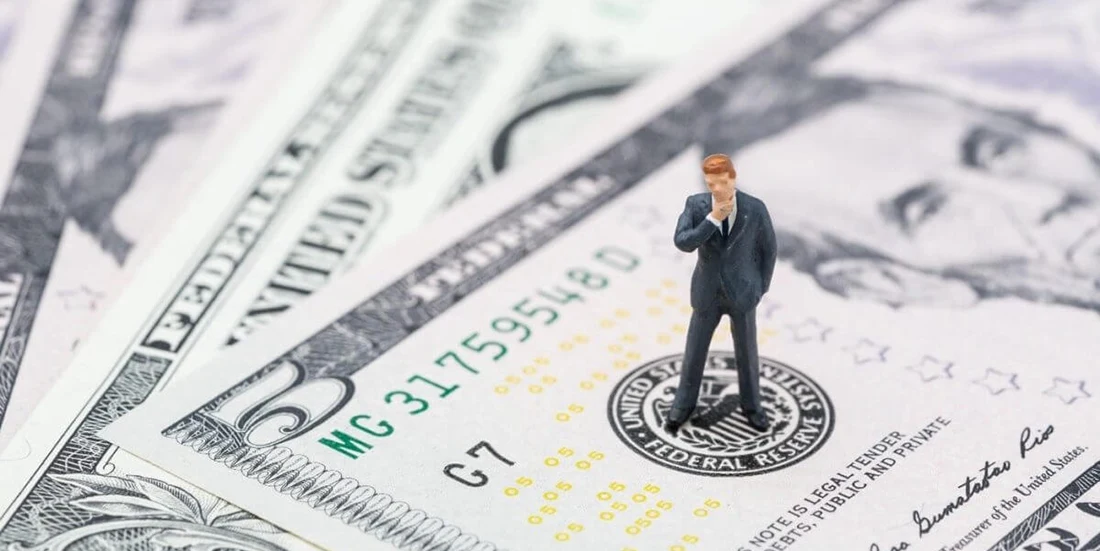
Can You Stop Paying Payday Loans Legally?
6 Min Read
One legal way to avoid paying your payday loan debt is by revoking the payment authorization. The bad news is that it doesn’t cancel your obligations or protect you from legal consequences, such as extra fees, collection calls, and credit score damages. Let’s explore lawful ways to stop paying your payday loan and find out what actions payday lenders can take to get their money back.
- How Can I Stop Paying My Payday Loan?
- How Can I Legally Stop Automatic Payments on My Payday Loan?
- What Will Happen If You Don’t Repay a Payday Loan?
- What Should I Do If I Can’t Pay off My Payday Loan on Time?
- Alternatives to Payday Loans
- Where Can I File a Complaint If I Become a Victim of a Predatory Lender or Collection Agency?
- Bottom Line
How Can I Stop Paying My Payday Loan?
The exact procedure depends on your loan repayment method. There are two scenarios to consider.
A Payday Lender Has Your Check
As you provide the lender with a postdated check, it will try to cash it when the maturity date comes. In this scenario, you can only avoid repaying the debt if your bank account is closed or you don’t have a sufficient amount in it.
This way, your check will bounce, and you will be charged a fee by both the lender and your bank. It’s amount can be from $20 to $50 per each bounced payment. Your loan provider might make several check cashing attempts, which can lead to overdraft fee accumulation.
You Allowed Automatic Payments from Your Bank Account
If a lender is allowed to withdraw money from your bank account automatically, you can still close your account or keep its balance below the required amount. This will result in processing fees or not-sufficient funds (NSF) fees accordingly.
However, there’s one more option available. You can also cancel automatic electronic debits. This way, your bank simply won’t issue any payments to the lender. Although it won’t involve any processing or NSF fees, the bank may charge you a certain amount for the service. Additionally, lenders may apply late fees.
How Can I Legally Stop Automatic Payments on My Payday Loan?
You can stop automatic payments on your payday loans in two ways:
- By revoking the payment authorization. To do this, you need to send your lender a letter to notify it that you no longer permit automatic debits. Then, you must contact your bank or credit union and tell it about the revoked authorization. Some banks allow you to do this online, while others may require a letter.
- By giving your bank a stop-payment order. Such an order informs the bank that you restrict the lending company from taking any payments from your checking account. The order needs to be given at least 3 days before the next payment date. This option may come with extra bank fees.
Whatever option you choose, keep in mind that it doesn’t cancel your debt payment obligations and may result in legal consequences.
What Will Happen If You Don’t Repay a Payday Loan?
Fees are only the tip of the iceberg. If your payday loan is 30 or more days past due, it’s considered delinquent. This means that your account might be sent to credit reporting bureaus, which will lower your credit score. Additionally, the payday lender can negotiate with debt collectors to get the unpaid debt back. This will result in their calls, which can be quite stressful.
If you still don’t repay the debt, a lender has a legal right to take you to court. This may result in litigation, extra fees, civil and criminal penalties for a bad check, and wage garnishment.
What Should I Do If I Can’t Pay off My Payday Loan on Time?
Here are a few ways you can handle a payday loan that becomes difficult to pay back.
Negotiate with the Lender
Payday lenders are usually interested in helping you as they want to get their money back as soon as possible. You can ask for a loan renewal or roll it over if your state allows it. Just keep in mind that such options can only be a short-term relief. Additionally, they come with extra interest on the entire amount you owe, making your loan even more expensive. Some lenders may also offer you a flexible repayment plan with no fees. This option is preferable.
Turn to a Credit Counselor
A credit counselor is a financial specialist who can assess your current financial shape and help you decide on your next moves. There are many nonprofit counselors who provide free consultations and can help you create a practical strategy to get out of payday loan debt.
Consider Debt Consolidation
Banks, credit unions, and online lenders offer personal loans you can use to combine all your existing debts into one with a single payment. You can also use it to replace a current high-interest loan with a cheaper option. Such loans typically offer more flexibility due to longer repayment terms and lower interest rates. However, some lenders may require good credit. Learn more about how to consolidate loans with bad credit.
File for Bankruptcy
Consider bankruptcy as a last-resort option as it comes with devastating consequences to your credit score and overall financial shape. Although bankruptcy allows you to get debt relief, you will still need to repay at least a portion of what you owe. It may either involve liquidation of the assets you own or a flexible repayment plan for 3 to 5 years.
Alternatives to Payday Loans
Although payday loans are quite easy to get, they may also be tricky to repay. Before obtaining one, consider a few alternatives that offer more flexibility.
Installment Loans
An installment loan allows you to get between $1,000 and $5,000 and repay the funds in affordable monthly installments over up to 24 months. Thanks to this, you can reduce the financial burden and avoid the debt cycle. Just keep in mind that longer repayment terms also result in paying more in interest over the loan life.
Secured Loans
A secured loan is a way to borrow money against collateral. You provide a lender with a repayment guarantee, typically a car, a house, or other valuable assets you own, and get a portion of its estimated cost. Due to the collateral backing, secured loans come with lower APRs and can be available to bad credit individuals.
Peer-to-Peer Loans
Peer-to-peer loans are financing options offered via specific platforms. They allow individual investors to lend money to other people, often at quite favorable terms. The amount you can borrow depends on your income, credit scores, and the investor’s limits. Check if peer-to-peer lending suits you.
Family Loans
Borrowing money from family members or close friends can help you get flexible loan terms adjusted to your particular situation. They often come with no interest, but the amounts are limited by your close ones’ financial capabilities.
Where Can I File a Complaint If I Become a Victim of a Predatory Lender or Collection Agency?
By federal law, collection agencies and payday lenders are not allowed to threaten you or contact third parties to explain your financial situation. If a creditor or a debt collector takes any illegal actions against you, you can contact The Consumer Financial Protection Bureau or get in touch with their state attorney general’s office.
Bottom Line
If you decide to stop paying your payday loans, seek advice from a lawyer before you start taking action. Keep in mind that you can’t just make your debt disappear. Even if you cancel automatic electronic debits, you still owe the amount you borrowed and need to repay the money. If you face any problems and can’t make a payment on schedule, contact your payday lender and ask about the options available. They may be willing to help you get back on track and receive their money faster.
Get a Loan Offer for up to $5,000Apply



